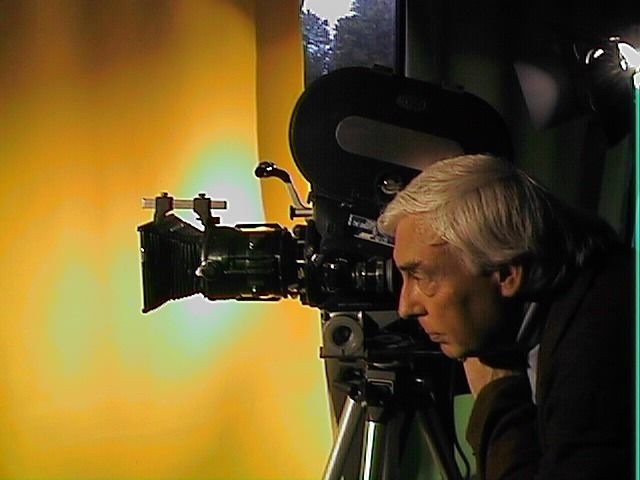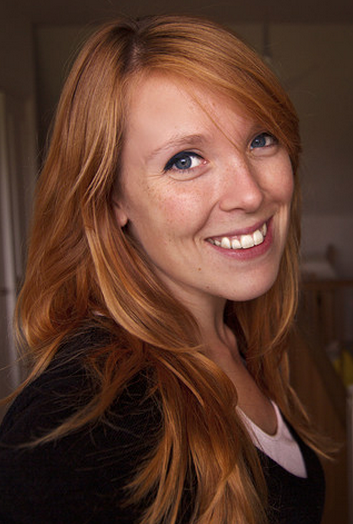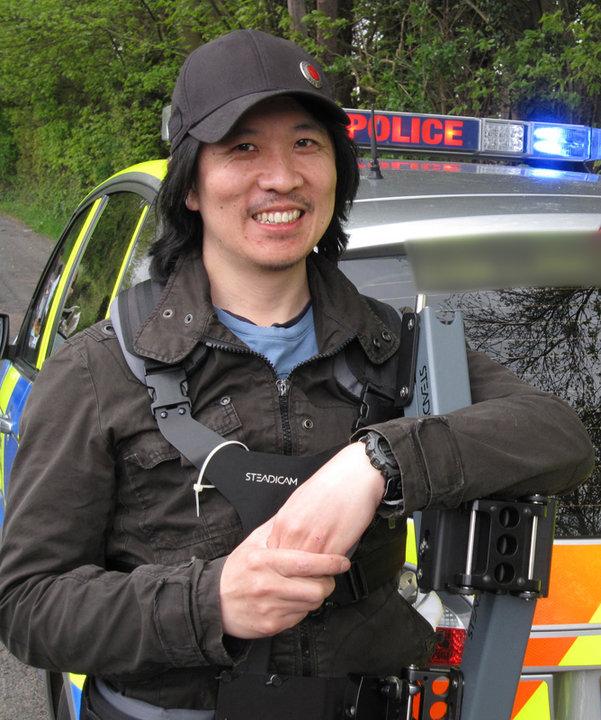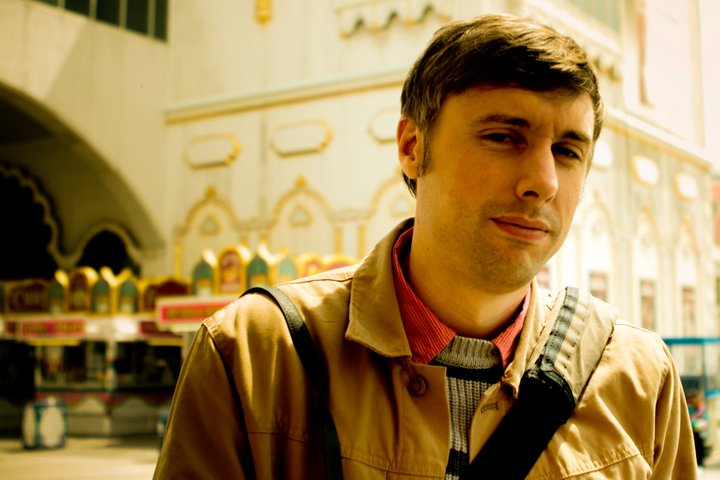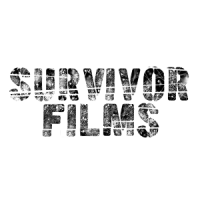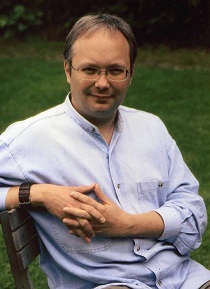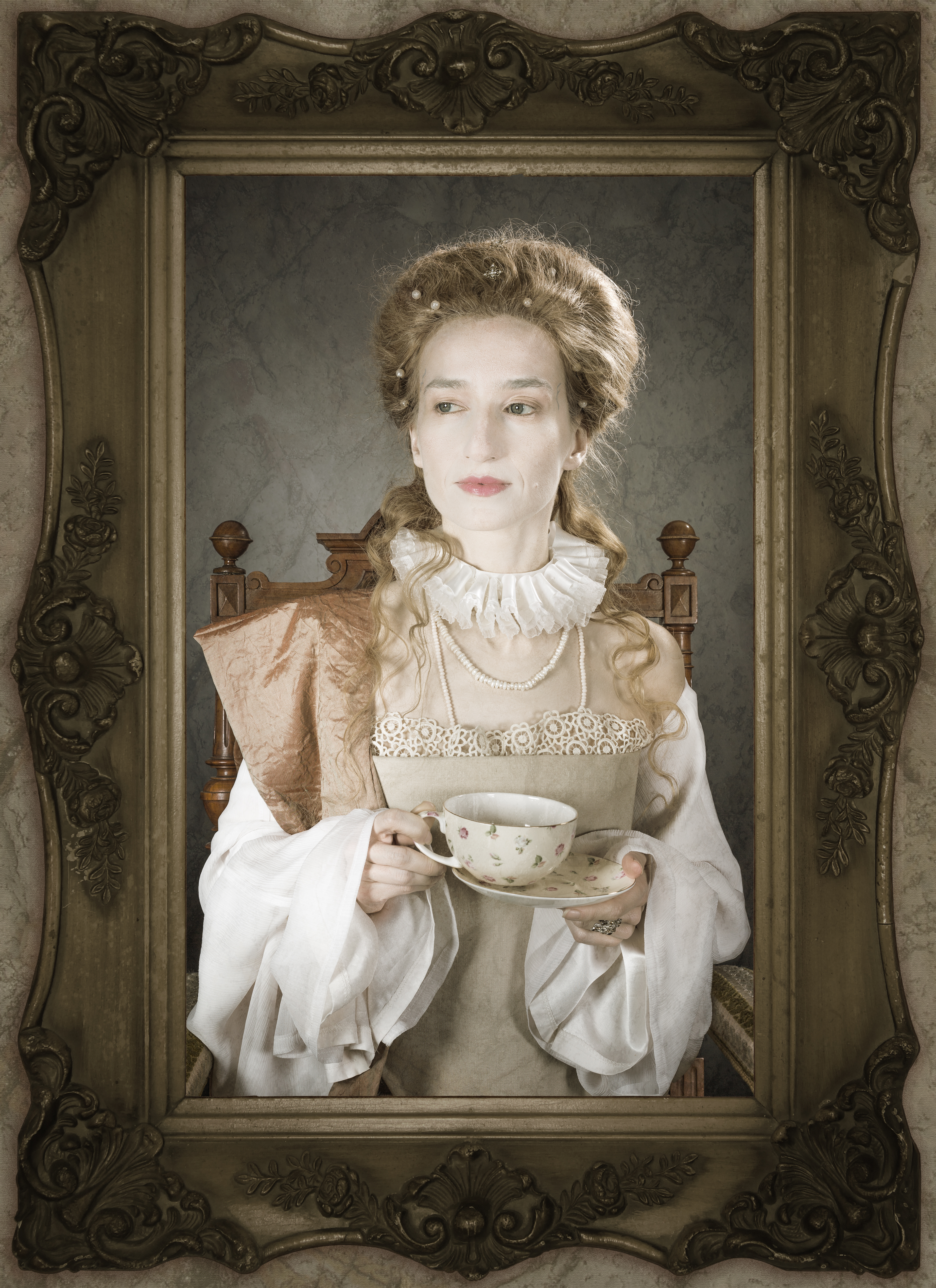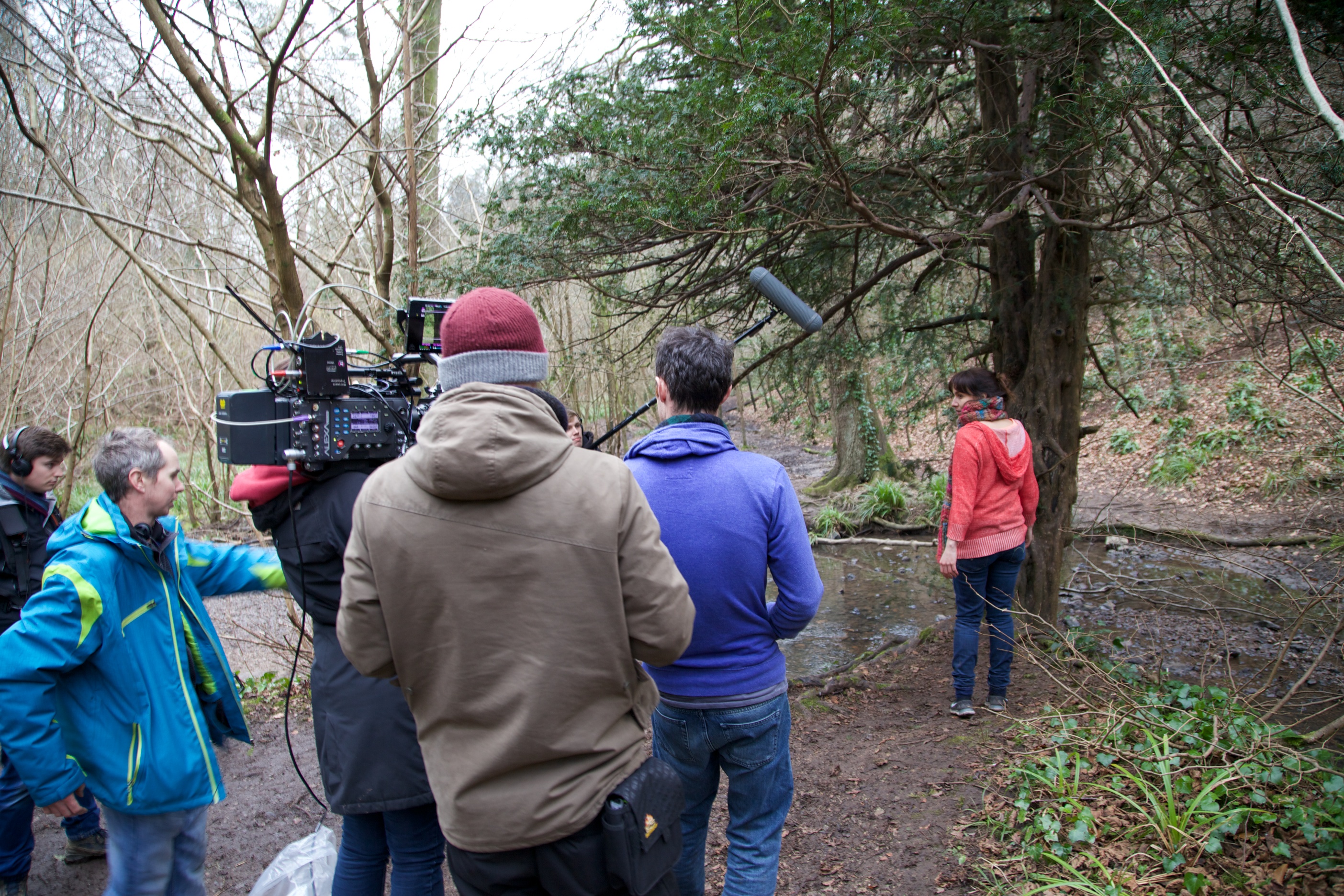ASK & DISCUSS
INDEXCamera dept and rumours
11 years, 4 months ago - Paddy Robinson-Griffin
I love the camera department, and they are fairly central to making movies, but sometimes they let themselves down a little. If you're in production, keep a watchful eye on lens fetishism and legends, the department is full of them and they can cost you a fortune.
Fetishism - 'you have to shoot on primes, zoom lenses are evil'. 'Zoom' lenses are not inherently evil. They are multi-length lenses, without having to change glass. Cheap ones are cheap quality, but a good multi length lens is still cheaper than a set of similar quality primes. They are or can be darker, sure, but that's nothing compared with daylight or being in studio. Still not convinced? Spielberg uses multi-length lenses.
Rumour - xyz camera needs longer primes 'because of the sensor'. Checking the specs online, someone who didn't understand crop factors told someone else who didn't check who told someone else who didn't check. So you end up spending big money on quality long lenses (that after a positive crop factor are even longer on screen) to shoot in a studio where you're on top of the action anyway sand can't really use them. They'll feel duty bound for the 'killer shot', one shot doesn't make a movie and s little planning would have got it anyway.
I've had people insist that the f1.2 must be hired over the f1.4 for a studio and daylight shoot. They even had to them stop the lenses down with extra ND as they were too bright.
It's funny, soundies often understand their kit fully and get the best from it, but camera department don't seem to always understand theirs, so chase and spread rumours as facts in order to seem like they know. Yet often it seems like magical incantations which don't trump physics! If you're in the camera department you owe it to yourselves to understand light and lenses. It's taught at 14 years old in school, you'll cope.
It's not one production, it's many productions over the years. Each change in technology gathers folklore - doubtless it always has, be it frame rate or the amateur perennial 'film look' being attributed to one or other factor, ignoring the fact that it's always a combination of factors. Just be aware of folklore and fetish, it's expensive, and concentrate on telling the story. Nobody wants to see a crappy set and lame makeup in glorious 8k, lest we forget 28 Days Later was shot in DV.
Am I wrong? Tell me, but please be ready to back it up with a bit of physics. I just want to save a few productions a few thousand wasted dollars each on unnecessary hires based on legends and folklore.
Only members can post or respond to topics. LOGIN
Not a member of SP? JOIN or FIND OUT MORE
11 years, 4 months ago - Franz von Habsburg FBKS MSc
Professional lenses (eg Cooke's) don't even have f markings - only T. The f are only calculated whereas T takes light loss into account due to internal absorption and reflection. You only get breathing if you attempt a focus pull on a cheap stills lens put on a movie camera for which it is not designed. As a decent prime may cost around £8k it is why many use a Nikon stills lens. (Don't use an automatic lens as a movie camera doesn't have the mechanism to control it, so it will remain fully open.)
11 years, 4 months ago - Franz von Habsburg FBKS MSc
Er... Why is this in the screenwriting SP? Jack Cardiff would be horrified by all the above! I also remember a stupid actress hurrying along the red carpet with the words "I must get a good seat else I may find myself with a bunch of editors." By the way, the T stop is selected not for exposure but for depth of field, so an f1.2 with an ND is NOT the same as stopping down. A prime has less glass than a zoom, and a track in has more power TO THE STORY than a zoom.
11 years, 4 months ago - Jessie Brickley
Actually, F stops are for focus, and T stops are for exposure. The reason for this is that F stops are calculated geometrically, using the focal length, while T stops are calculated electronically to gauge the actual light that the glass allows through to the film plane/sensor. On a good lens, the F and T should be more or less the same, but some older/cheaper glass will not let as much light through as the F stop declares it should. F for Focus (literally, focal ratio), T for Transmittance (as in transmittance of light for exposure).
I just wanted to clear that up - it's not a life and death distinction to make, but if we DP's are to own our knowledge, we need to have the right knowledge commonly understood between us all!
11 years, 4 months ago - Jessie Brickley
I agree on the larger point you're making - we should select the aperture for the depth of field, so in making lens choices we need only rent lenses that open to the stop that reflects the desired look of the film. No point in using f1.2 lenses if you've already predetermined (which a good DP will do) that you're shooting at f2.8 or f4. If, however, the film calls for a lot of night shooting or candle lit scenes, then the f1.2 becomes a necessity for the director's vision.
So I agree on the wider point you're making, it was just a language/terminology distinction! See? Good DPs know their physics ;)
11 years, 4 months ago - James Martin
I'm sorry, but this sounds like a slightly mis-directed rant? There are some valid points in there, but I think the message perhaps should be that an honest and experienced camera crew/DoP shouldn't do any of this?
I've seen student DoPs guilty of all of the sins mentioned, but when it comes to people that make their living, I would be pretty mortified if the above happened.
Also, do we need to start ranking departments in order of importance? We need all of them to make a film!
Yes, story is always going to be more important than the quality of the cinematographer, but as the DoP I do not write the story, I just help tell it!
James
11 years, 4 months ago - Jessie Brickley
@Dan Selakovich
I'm a British DP in California, and I have to say that fortunately I've never come across the kind of cine diva of which you speak... but I have heard many a rumour. No crew member should be behaving like that - ever. We're all accountable for our actions, on set and off set. There is no substitute for good setiquette, from the runners right up to the Director. I've worked for some unnecessarily aggressive ADs that would have a lawsuit brought against them in any other industry.
I'm trained at Academy of Art Uni in SF, and you'll be glad to hear that the cine department there is united in its attitude. Depending on who you talk to, the mantra is either "Roger Deakins could out-shoot you on an iPhone", or the famed Miyagawa's phrase "Forget the expensive equipment, only beautiful people can take beautiful pictures".
The former phrase is a favourite of the cinematography department head, and he repeats it week in, week out. He tells all his students that first and foremost we should learn to be visual authors before we play with the gadgets and toys.
11 years, 4 months ago - Dan Selakovich
You'd be surprised what seasoned DPs think or are capable of. I spent years and years working uncredited fixing films in trouble by directing new scenes and re-editing the entire picture. I've worked with DPs that used every light in the truck. That spent hours lighting a scene at the expense of getting actual footage. That would light for their reel instead of lighting for the scene. That rented lens packages for lenses not requested or needed. Or that wouldn't operate a certain jib because they had never used it before, and left it to the dolly grip to operate just because they were afraid of looking bad. I've had a DP threaten to walk off with his crew if he couldn't light it his way, no matter how wrong it was. Yes, I fired him. I will never, ever work again with a DP that was educated by the American Film Institute. It seems they teach a course in being an egomaniacal shit that treats every other department like garbage. But hey, maybe things are different in the U.K. Having said all that, I've worked with some really wonderful DPs, that not only understand their jobs, but most everybody else's job and even the limits of production. They are a dream to work with. But those kind of DPs are always working, and hard to get at times.
Ranking: when it comes to budget, shit yes rank the positions. Fact is, I'd rather spend the money on a good PM or AD over a DP. I've seen tons of budgets that were lopsided on the camera department side, screwing all other departments in the process.
11 years, 4 months ago - Dan Selakovich
@Jessie Brickley I couldn't agree more. I once worked with a British DP that was taking over for an American. He took one look at the grip/lighting truck and sent it back to the rental house after commenting "Why in the world do we need all of this?" Love that man.
11 years, 4 months ago - Charles Wood
The issue that this started with was GOOD pictures, and the point made that knowing your stuff helps you get those at a price.
It is always easy to insist on something better, so you can be sure of achieving a picture quality, and it is the reason film has still not really died...you can fix it in post.
Lenses are a big issue, especially as they can cost 10 times that of the sensor system (OK...camera) you are attaching it to. Frankly I have hardly ever met a cameraman who REALLY understood things like optical bandwidth, geometry and resolution in detail...most lenses and cameras far exceed the real requirement for most work.
Light level is still an issue for many of us, and a fast lens helps, at least you can stop it back. You may not be able to light a scene better, and it may look right as it is lit...and you just want to capture that. A lot of production effort and cost can be used up in reproducing natural light, but at a level the cameraman wants.
I agree with the comment on zoom fetishism: The fact is that most zoom lenses are NOT used to zoom, but to frame the shot and set the style, so practical problems like breathing etc. become a bit irrelevant. If the lens matches or exceeds your sensors capability , then unless you NEED to zoom a shot, in which case that quality matters a lot, they are much faster to work with than primes. Provided their geometry is good, and they are bright enough! Primes can also give other problems, apart from the set up issues, the picture can be TOO sharp and then you end up affecting the style of the image...and having to keep it throughout the production which increases costs.
If I had a big red button that could ban any shots on my HD TV that were too sharp, shot on a camera causing alias and moiré problems, focussed on the background and hand held on a D5 there would be a lot of blown up "camera people"...and good riddance!
11 years, 4 months ago - Jamie Kennerley
I don't think I've read such a load of unnecessary criticism - mixed with a whole load of self-congratulatory back-patting - in a long time.
Can we PLEASE stop generalising and describing previous bad experiences as industry-wide problems?! Sometimes I work with zooms for quickness (yes it is a little quicker than changing a lens John - of course it is), and sometimes because I'm working with rigs - in or on-car for instance, where you're limited to where you can put the camera and sometime that 18mm or 28mm in that place simply won't get you the shots you need.
I've also worked with producers you I believe are wasting a quarter of the budget on what I think are unnecessary spends. As have I seen my stuff cut by editors who destroyed it altogether. As have I worked with art directors who made my life 10 times harder by barely doing their job. But alongside all that I've worked with the most wonderfully able people who also make my life harder by doing their job so well that it doubles the pressure on me! And those are the people I look to continue to work with.
But, I don't start a Shooting People discussion about it warning other shooters of the dangers of producers who on insist on this or that, denigrating whole departments. We all have good and bad experiences on shoots, and we all work with people sometimes who we feel don't know their field as well as their might. Simply choose your projects and your collaborators better.
11 years, 4 months ago - Peter Ward
At the same time, playing with toys is what draws people to production--is sorta a sine qua non, so to speak. But, having once sold this equipment for a living, I can agree camera nerds among the biggest posers out there. That doesn't mean one shouldn't photograph their film well, though. The look is big part of cinema's charm, at least for me. But "well shot" shouldn't be conflated with "pretty picture".
11 years, 4 months ago - John Lubran
Mathematics comes into everything, it's the purest of all sciences; but I've never needed to do frontal lobe maths in order to find the right exposure, shutter speed or depth of field since the advent of video. I can flip an ND in, tweak the iris, shutter and focus all by eye, and use my frontal lobes for other things. In the old days when one had to shoot film, without any kind of live monitoring other than a purely optical view finder that told you nothing but the frame, focus and exposure had to be calculated very carefully with meters and tape measures, one had to know ones film speed etc., and hope that when the dailies came back several hours, or even days, later, all those calculations were proved correct. It was enormously risky and costly and meant the camera department absolutely had to be at least as much technicians as they were artists; that process had a huge affect on the whole methodology. Whilst there's a lot that's commendable about cellulose driven disciplines, it's knock on affect with the way a film was made was not always beneficial.
Now we're in the digital age, with 4K technology available on a smart phone or GoPro and top end formats exceeding the 5K equivalent of 35mm and heading towards stella quality (10K and more is already being played with in the R and D labs), I imagine that film has all but had its day and with it quite a bit of the technical sub culture that used to be so essential. Now we have 'what you see is what you get'. Instant exploration of images, frames, focus and exposure requires nothing other than good eyeballs and a knowledge of monitoring, which does require a little expertise. This technological revolution means that the amount of time resources and energy that used to be essential for camerawork, whilst still very much an acquired skill, is not as demanding as it was, which in turn allows new ideas and techniques to be explored. There's even a merger between production and post going on that will likely become almost seamless. Becoming a cracking good cameraman and DoP has become far more of an inherent art form and far less of a science process. The style and culture of film makers seems to me to be changing with the process.
I've not missed the fact that those who have been or are also good editors often make good camera crew, directors, sound recordists and producers too because it's in the edit suite that everyone else's achievements and failings are learned.
11 years, 4 months ago - Paddy Robinson-Griffin
Absolutely Dan. In fact I'm getting so frustrated on this current project because I'm trying to bring some ideas and approaches from a parallel industry (big live events). I've noticed some huge cultural differences, and I way prefer the events world, tonight at least.
It just seems sometimes that there's lower resistance to change in the events world, and people can sometimes be more 'possible'. Maybe it's the few old hands from union gravy train days that perpetuate some of the older practises that became folklore, I don't know. I do know each time we do a show we will be doing something very new, cutting edge technologies are commonplace, maybe that keeps it feeling fresher for people.
Certainly old practises like Per Diem's are long gone in that world and I've removed them from my film projects despite requests. There's no tax advantage, they have to be invoiced and taxed as pay, cause production a headache, and there's a cash machine on every street corner these days, and credit cards. PD's have no place in a modern production.
Something I'm trying to introduce from motor racing, funnily enough, is plain language contracts. Not having much luck so far, but that's because my hands is forced. In the world of motor racing at the highest levels though they realised they were spending a lot on lawyers to encode an intent in archaic legalese, then another to decode it again. Lawyers were the prime beneficiaries of that arrangement, so they now get to advise on the procedure, but not for unnecessary legalese.
This is off my original topic I suppose, but want to demonstrate that inertia runs deeply across many departments sometimes.
11 years, 4 months ago - Jamie Kennerley
To come back to one of your original points though Paddy:
"I've had people insist that the f1.2 must be hired over the f1.4 for a studio and daylight shoot. They even had to them stop the lenses down with extra ND as they were too bright."
I'm not sure if that's a typo - "stop the lenses down with extra ND". Either they stopped the lenses down or they used ND - I'm presuming they used ND in this instance. That is precisely to maintain the desired stop of f1.2. Which in this case would suggest that the f1.2 lens was the right choice - for whatever reason that choice was made.
11 years, 4 months ago - Franz von Habsburg FBKS MSc
You're right, Jamie. There are too many who think adding an ND is the same as stopping down whereas whilst both have the same effect on exposure, the latter changes the DoF. The maths of cinematography seems no longer to be taught, which is why we, together with Arri, created an MSc in Cinematography at Greenwich University. I'm not sure which film schools bother with it any more but the Brighton Film School did whilst I ran it as it was mirroring the LFS.
11 years, 3 months ago - Jessie Brickley
I'm studying in the US, at Academy of Art Uni in San Francisco. If anybody is looking for a school that majors on the maths of cinematography, and requires that you truly OWN your physics knowledge of light and camera, then look no further. Initially I thought of that side as a bit of a drag, but after spending a couple of years immersed in the science of my profession, I can't thank the course leaders enough for insisting that we know this stuff inside out. Young DPs... take note. We are the people who will carry our industry in 20 - 30 years time, and we need to take the scientific foundations with us.
11 years, 4 months ago - Andrew Morgan
Zooms are great for DSLR/Blackmagic users looking to get the best bang-for-buck out of a lens purchase - in the budget end of the market, the Sigma Art 18-35mm f1.8 is a terrific lens that (with a focal reducer) is effectively 5 primes in one on a Cinema/Pocket Camera (20,24,28,35,50) - it's also a constant f1.8 across the entire range (f1.0 with Metabones' SpeedBooster).
11 years, 4 months ago - John Lubran
Very well put Paddy. Most of us like to honour our own skillset and can too often overstate the requirements either consciously or not to justify our owm self esteem. I'm no doyenne of the camera art, but after a quarter of a century of multitasking production work it's evident to me that over precious pedanticness in the camera department is too often disproportionate to the overall benefits. As ever it's the content that's king and no amount of expensive polish can turn a pigs ear into silk purse.
I do appreciate a high quality zoom lens and I do love to judge what I'm recordong from what I can see on the monitor rather than from mathematical equations. That for me is the wonderful thing about digital, what you see is what you get. Now poorly synchronized digital assist when shooting celluloid is another matter; don't put up with it!
11 years, 4 months ago - Dan Selakovich
BTW, Paddy, your post reminds me of a story my dad told me when I was 8 or 9 (which was so VERY long ago), that has always stuck with me:
A mom was cooking a pot roast, which she cut each end off of before sticking it in the pot. Her kid asked why she did that. She answered, "I don't know, that's just the way my mother always did it." She's curious, so she calls her mom and asks. Her mother tells her "I don't know, that's just the way MY mother always did it." So the woman calls her grandmother and asks. The grandmother answers "That was during the great depression, and we couldn't afford a bigger pot, so I had to cut the ends off to make it fit."
So often we take the way things have always been done as the right way. I ran into this a lot with my book on how to build camera equipment. I'd get emails often about the number of wheels put on a dolly. People would outfit their dolly with a huge number of wheels, and when I'd ask why, they'd say, "because that's the way professional dollies work." Not taking into consideration that a Panavision camera with a 1000 foot mag weighs about 60 pounds, a fisher dolly on rails adds another 300 pounds, and needs those extra wheels to handle the weight. Just not needed for a 2 pound camera and a 170 pound operator.
11 years, 3 months ago - Jessie Brickley
Couldn't agree more. What it boils down to again is a good DP knows their trade. It's up to the producer/director to ask the right questions before signing on with a DP to suss out if they know their stuff or they're relying on expensive gear to hide their own incompetence. A rubbish camera operator will not shoot well on an Alexa just because it's an Alexa, but a great camera op on an Alexa with a solid camera crew supporting them will elevate your film greatly.
11 years, 4 months ago - Jessie Brickley
Let's get this straight - no member of crew or production is 'more important' than any other. The editor will have nothing to work with if the DP doesn't shoot a cuttable film, and hasn't shot the damn thing in a way that tells the story it needs to be told. If that's the attitude, then set the camera up on a tripod and shoot a play.
On the other hand, I have seen my work (as a DP) in the hands of a terrible (and I mean truly abysmal) editor, and it made me want to weep. He lost the story entirely, and his colour grading was worse than useless. The director and I worked together to recut the film and we pulled it out of the bag. A terrible DP or editor can make or break our ability to suspend disbelief, and you need all the factors working together to make an exceptional (or sometimes even passable) film.
Let's stop with the in-house fighting. We're all united in a common cause, telling stories.... let's act like it.
11 years, 3 months ago - Jamie Kennerley
The best shoots I've been on Nicholas are where everyone is good at and does their job, working well with other departments and keeping to schedule and budget. The worst shoots I've been on involve a production department and ADs that have very little understanding of what everyone else does, the sensitivities of communication, the flexibility that's sometimes required in shooting a film and the need for everyone to understand where we're up to. Surprisingly - you might say - what makes a good and bad shoot for me rarely has anything to do with the camera department.
11 years, 4 months ago - Andrew Morgan
Lots of replies here so I'll just address Paddy's original post: anyone can buy a camera and there's lots of 'DoPs' out there that are just that - people with cameras.
I'm not a DoP, although I've filled-in as one - both on my own film and on other peoples productions. At best I'd call myself a camera operator (since on occasion, I operate a camera) but even that's a disservice to those in our profession that have trained, worked and earned the right to be called that.
In my opinion, the best way to avoid being burnt is to take the time to learn a little about cameras and lenses - and this doesn't just apply to the camera department - knowing something about the roles, skills, equipment and challenges of *all* the departments that make up the crew can only make you a better filmmaker.
Just don't ever presume to know it all ;)
11 years, 4 months ago - Dan Selakovich
Yes, I suppose that's true. But if a DP I hired requested a 4k camera, I'd find a way to get it for him/her. You have to trust your people until they give you a reason not to. I come from a film background, so there weren't as many choices even 10 years ago. But if all of your budget goes into equipment over people, then yes, that's a serious problem. When Avid first came out, things changed drastically in post. Before Avid, producers would ask about your skill, look at films you'd cut, etc. Then for about 5 years the only question for an editor was "Which Avid do you own?" As if Avid did the editing for you.
11 years, 4 months ago - Dan Selakovich
@Jessie Brickley In the late 70s in early 80s I was in the camera department, so I kind of know of what I speak. There are bad people in every department. No doubt. My complaint is that budgets from not very experienced filmmakers and even a few experienced ones lean heavily toward the camera department unnecessarily.
BTW, whether the footage cuts or not is the director's job. Lenses, camera placement and coverage are the director's place. Not the DP's. How much control a director gives to the DP in these areas is totally up to him/her. The DP is in charge of the lighting, not coverage.
11 years, 4 months ago - Nicholas Hughes
I've been on a few shoots where the camera department has held up production over issues such as "these aren't the right prime lenses" or "this light and these gels aren't correct". A runner is despatched to the hire company, time is lost, the crew have nothing to film and the production has to spend more on something they didn't initially budget for.
This is another area where crucial man-management from the Producers and 1st AD is needed. I would be very reluctant to interfere with the artistic integrity or craftsmanship of the DOP and the camera department, but in turn they have to realise that time is money, work needs completing and that co-operation with the rest of the crew has to happen.
Everyone needs to know what the budget is for their department and how much time they've got to do the work in. Pretty basic stuff but it's surprising how many people forget these two facts: Money can't be conjured out of nowhere and overshoots are a luxury, not a given. The best shoots I've been on are where the camera department know what the parameters they've got to work in and put in their equipment requests accordingly. The worst are where they turn a deaf ear to the production department, suddenly want things in the middle of a shoot that weren't budgeted for and go way over time because of a refusal to work around a problem.
11 years, 4 months ago - Dan Selakovich
To clear up my trashing of DPs: I'm not trashing DPs. I'm trashing that particular breed of DP that thinks the production is there for their benefit. Not the film's. Here in Hollywood, it's incredibly common. I'm trashing the producer that spends a huge amount of the budget on the camera department (do you really need 10 grips and 5 electricians for a small film of 2 people talking over a tea cup?), when it should go to the production designer or the production mixer or post (especially color grading). Hell, I was a camera operator for commercials in the late 70s, and DID think back then that the camera department was THE department. (I even wrote a book that focuses on that department). But I've grown up a lot since then and have 30 years of experiences that form my opinion. Luckily my good experiences outweigh the bad. So when it comes to ranking positions, it's not from a point of inexperience. Sorry, but EVERY producer ranks positions. That's the way it is. They will put more importance over the DP rather than the sound mixer every time. They will shorten post schedules to get another week of principle. Even the DGA only gives a director 10 guaranteed weeks to cut a film. Absurdly short.
So I'm sorry if I stepped on anyones toes, but try to budget a film without ranking. It's impossible. Some positions will be seen as more important than others. I'm simply trying to get inexperienced filmmakers to consider other departments as being critical to the process and not throw every cent to the camera department.
11 years, 4 months ago - Alève Mine
Very informative discussion here thank you all.
As Andrew suggests is of use, and as I've been active in various roles on (and off) a film set without all the required knowledge, only using the sort of common sense developed during engineering studies, I'd love to gain a thorough overview of sound, camera and lighting, as Jessie put it, physics, and currently available equipment. For just in case. Because sometimes you have to do things you hadn't planned to do, and this is not something you can just know without taking the time to learn.
Are there any online or pdf "bibles" for that I could read during any upcoming long free summer nights?
And a newsletter for new equipment releases that covers the various providers?
Thanks!..
11 years, 4 months ago - John Quarrell
I've been reading this post with interest and feel I have to respond! Working with zooms over primes is not an argument based on time saving. I work with primes all the time and really it takes no time at all to change a lens! A good DOP, camera op or Director will know their lenses and frame it based on the style mood and action of the scene just as quick.
I find people who like zooms like to shoot the shit out of a scene covering every angle and put it together in the edit! This is something I see in TV drama production all the time, where it tends to be about shooting dialogue for the producer to edit later!
Good framing and composition often come with using primes as people have to know what they are doing with them. Seriously look at '12 years a Slave. Holding a shot which is well composed has far more impact than lots of shots banged together in the edit. There is a time and place for fast cutting, use it only when the film requires it.
A good director/DP use their pre-production time to plan this. Story boards for action sequences. A good director knows what shots he needs to make the scene work.There is a massive difference between features and most TV drama and this is where technical awareness shows.
I do agree with the man about sound. Bad sound = bad film full stop. But I would also say 5D + inexperienced focus puller/small camera crew = crap film. Soft focus is a tool to be used at key moments to isolate the characters and emphasis the emotion, drama. I hate watching shots where characters drift in and out of focus for no reason other than bad camera work. This does effect the story as you can't see the action! Shooting well with a 5D can be twice as much work as shooting with an Alexa because of that bloody great big sensor!
I shoot films with lenses that are 40 years old and the images look great on a 60ft cinema screen. Yes you don't need the newest most expensive kit to make it work all the time, but trust in professionals. Many don't know the engineering mathematics of every new camera that comes out each year but the basics of good photography haven't changed much over the last 100 years and this is what a good DP knows inside out.
Every department is vital to making the production happen and as a director you have to know how they all work so you know how to get everyone pulling together to create the same vision and make the film you set out to make. Trust them and yourself and everything will be fine!
Sorry if a little of tangent!
11 years, 3 months ago - Nicholas Hughes
I agree with your first sentence. However, what you say at the end happens more than just rarely. I've had to spend way too much time being a mediator between directors, producers and DOPs in my career because one fails to understand the other's perspective.
11 years, 4 months ago - Peter Ward
What's really scary, though, is production sinking all of the budget--not even into a spoiled DP--but into a camera. I guess there's some ROI justification there; but not when you end up with a fresh, unpaid NYFA grad shooting your film.
11 years, 4 months ago - Dan Selakovich
So true. Just this last weekend, a friend asked me to go over his budget. What he budgeted for a DP was absurdly high, while what he budgeted for an editor was absurdly low.
This is so incredibly common. DPs are seen as golden gods. But they are less important than editors. Sorry, but they are. Story will always be more important than the look, and editing is story.
Need proof? On any give day, I can head to a theater and watch a beautifully shot Hollywood picture, and still hate it. Why do I hate it? Because the story sucks. Now think about some of the Dogma films. They all look like crap, comparatively, but damn, "Celebration" was awesome.
Most people will accept a film that doesn't look nice. What they won't accept is bad sound and a bad story. Spend your money there, kids.


